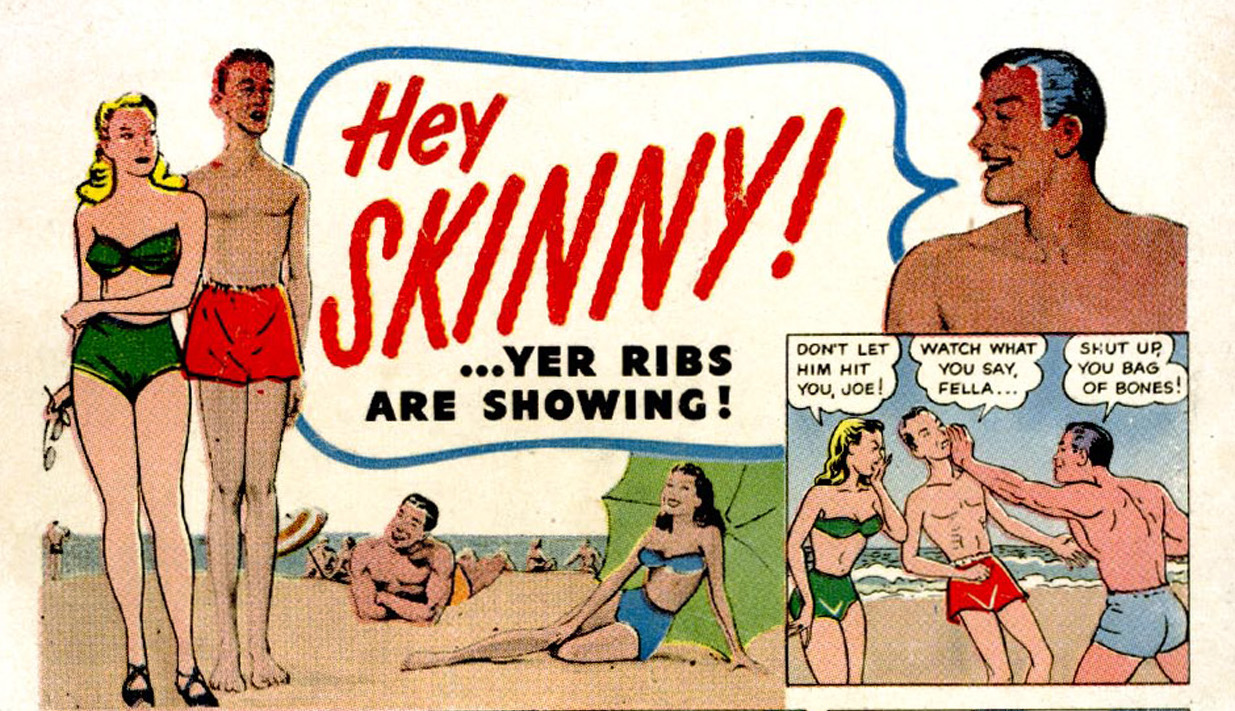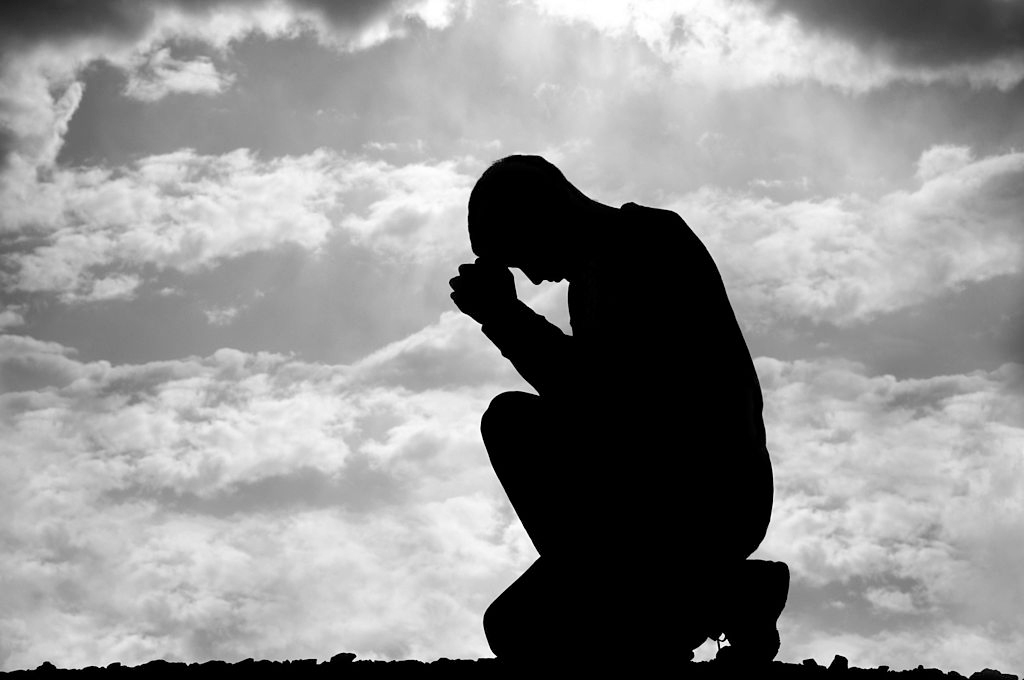Over the 10-day period between the Day of Remembrance and the Day of Judgement, when our ephemeral lives and eternal souls swing in a delicate balance between life and death, there are certain things we can do to ask our Creator not to give us the soul-whupping we deserve. (Or maybe just the whooping I deserve. It is entirely possible that you, reader, are a better person than I am. Hell, I’d bet a few Eternity Points on it.)
So we take the most common prayer that we say all year, the Shemoneh Esrei (Literally “the 18,” the thing we recite three times each day, morning noon and night, even though it’s actually 19 prayers and not 18 — long story, I’ll tell you some other time) and we throw a bunch of new gloop into it. Some of it’s new lines, with new tunes, that comes in between the existing paragraphs. Other parts are remixes of the existing text. All of it catches us by surprise, throws us for a loop, makes us question our routines and our habits and what we think is normal….
Oh, let’s just jump into it and get started. Whether you’re ready or not.
You’ll deal.
1.
Zochreinu l’chaim
זָכְרֵנוּ לְחַיִּים
This is addressed to G-d; we are talking to G-d.Of course. G-d created the world, every time we open our mouths it’s going to G-d; G-d sees all; G-d knows all; one of the first stories in the Torah is Adam & Eve trying to keep a secret from G-d and, of course, failing. There is no question of whether or not G-d is listening; G-d can’t overhear anything because G-d hears everything, right from the assumption it’s being spoken aloud. Then: why pray? (Because sometimes we need to ignore everyone else and talk only to G-d.) But also: that means everything we say is a prayer.
melech chafetz b’chaim
מֶלֶךְ חָפֵץ בַּחַיִּים
So why the alternate form of address? The plural object, the command form? We are not asking G-d, we are telling G-d: Remember us! We created a new name for G-d for just this occasion. After the standard opening, the one we use every day, where we address G-d by a slew of titles and panegyrics and names and adjectives turned into names (G-d of Abraham, G-d of Isaac, G-d of Jacob; the Almighty; the Great; the Stringent; the Awesome), this one-line interjection takes the prayer and swings it for an unexpectedly sharp about-face: Remember us! and then Our King who desires life! As if G-d forgot G-d’s own name, G-d’s own role. We are being chutzpadik here, people. But not undeservedly so: This is our life. It is hanging in the balance. We need to demand it. A Chasidic tradition around the New Year: Everyone bakes honey cakes. When you go visit someone, you don’t ask for honey cake. That would be rude. You don’t sit around politely waiting for honey cake to be offered. That would be pretentious (if you expect it to be) or it would be thinking poorly of your hosts (if you assume they haven’t made any). You demand it: Gebt mir lekach! we are told to demand of them. Give us cake!
v’kosveinu l’sefer hachayim, l’maanecha melech chayim.
וְכָתְבֵנוּ בְּסֵפֶר הַחַיִּים. לְמַעַנְךָ אֱלהִ`ים חַיִּים
This is followed up right away by another demand: Write us in the book of life! I mean, while we’re being demanding, might as well not ask for just one slice but the full cake, right? But then the question really should be, why not ask for that straight up? If we want life, ask for life.
Rosh Hashana is the Day of Remembrance. For better, for worse. It’s a day when the prayer service gets transmogrified from 2 hours into 5, a day when it’s nearly impossible not to have flashbacks to horrible, embarrassing and devastating moments over the past year where you did what you shouldn’t have, didn’t do what you should, often things that are not so horrid as stabbing a man in the bloody chest or making love to a wooden idol in public but instead baiting a friend into buying you a drink or yelling at your kids for stupid shit (and it is all stupid shit). That’s our burden. That’s our shit to remember. What we are saying to G-d is, we’ll remember that shit, you remember the other shit—the good shit, the perfect shit, the moments where all might not be right with the world but it’s good enough, where we were grateful and said thanks for an unexpected blessing or where we were about to explode and held ourselves back. Every woman I didn’t sleep with, and there are nearly 3.5 billion in the world, rather than the one I did. L’maanecha melech chayim. Dear G-d, always look on the bright side of life.
2.
Mi kamocha, av harachaman, zocher yetzirav l’chaim b’rachamim.
מִי כָמוךָ אַב הָרַחֲמִים. זוכֵר יְצוּרָיו לְחַיִּים בְּרַחֲמִים
The first two words are cribbed from an existing poem, one Moses and Miriam recited when they charged through the parted Red Sea: Who is like You? Because nothing is so Jewish as celebrating your redemption from slavery with a rhetorical question. It’s a nice rhetorical question, for the most part, not emphasizing G-d’s amazingness (since we mentioned that extensively right at the beginning) but G-d’s uniqueness. Also emphasizing our relationship to G-d. When you love someone more than anybody else, you can list of a Roget’s slew of adjectives (breathtaking, brilliant, blue-sky bootylicious) but all the best love songs are some variation on Ain’t nobody like my baby. And this is my favorite thing about religion — good religion, anyway, not the oppressive kind: everyone’s take on G-d is different because everyone’s relationship with G-d is different. Who is like You, G-d? Nobody, that’s who.
But there is some common ground, and some common through-line that connects us all or guides us in our own individual relationships, and that’s what prayer is. Av harachamon, Father, the one who has compassion for us. Rachaman officially means “compassion,” but it’s more like sympathy, seeing each of our problems and our cases on its own. And then it’s more like empathy, because G-d doesn’t just try to feel what we’re going through, G-d’s been through it too. The praying. The distractions. The memories. The original experiences of the memories we’re flashbacking to.
And then the final hammerswing of the conclusion: zocher yetzirav, remember Your creations. We belong to You. We are Your fault. Everything that’s good we do, we owe it to You; and every mistake we make is a result of Your Creation as well. It’s weird that it’s yetzirav, the third-person “G-d’s creations,” and not yetzircha, “Your creations,” and I’m not sure why. Maybe someone with better grammar than me can explain?
3.
Hamelech hakadosh
הַמֶּלֶךְ הַקָּדושׁ
Here we go. The catch. This one takes me by surprise every time I read it, the reason why the title of this is Additions and emendations and not just additions. While the first two special beseechings were new lines inserted into an existing text, this is a fake-out, the usual blessing ha-el hakadosh morphing into hamelech. El is one of G-d’s names, one that denotes stringency and anger, which we’re replacing with a more kind, gentle, and flattering name, King.
It’s weird — or, more accurately, an anthropological divergence — that, in Jewish theological literature, being a king is almost always a good thing, even though in the Bible the position of king was granted as a reticent condescension to the Israelites (not a good thing), and in post-Biblical times kings were often the ones who carried out pogroms, forced conversions, and the “Jew tax” (also not good things). But here, G-d being King is G-d being good to us. Ruling our lives and making our lives better.
4.
Hamelech hamishpat
הַמֶּלֶךְ הַמִשְׁפָּט
Just when you hit a rhythm of the regular prayers, the liturgical writers go ahead and screw with you. Hamelech is the third prayer. Then we get the usual prayers, the usual prayers, and smack in the middle — #11 — melech ohev tzedakah u’mishpat becomes…well, this. The usual blessing, Blessed are You, G-d, the king who loves tzedakah and justice, becomes just justice. (Mishpat is a more congenial, gracious, judge-everyone-favorably kind of justice, whereas the other {and more kabbalistic} word for justice, din, belies a harsh, this-is-the-way-it-is justice.) More, we don’t want G-d’s justice to be dependent on the amount of charity we give. We just want it to be given.
5.
V’kosuv l’chaim tovim kol benai verisecha
וּכְתב לְחַיִּים טובִים כָּל בְּנֵי בְרִיתֶךָ
Every time I say chaim I remember (memory again) we’re asking for life. And when we say l’chaim, we say it means “to life!” but that’s probably a bastardization of the text induced by Fiddler on the Roof. We don’t drink alone, we don’t say to life, we say to lives, everyone’s, kol benai verisecha. This one is short and direct and pleading: Give us life!
6.
B’sefer chaim, bracha v’shalom, u’parnasah tova, nizacher v’nikasev lefonecho, anachnu v’chol amcho bais yisroel, chaim tovim u’leshalom.
בְּסֵפֶר חַיִּים. בְּרָכָה וְשָׁלום. וּפַרְנָסָה טובָה. נִזָּכֵר וְנִכָּתֵב לְפָנֶיךָ. אֲנַחְנוּ וְכָל עַמְּךָ בֵּית יִשרָאֵל. לְחַיִּים טובִים וּלְשָׁלום
And then I think about what life really means, and why I want it so bad. I’ve done good things with my year. I’ve lived a complete year. One way or another, G-d has forgiven me for my transgressions of the past, or at least G-d’s forgiven me enough to get me to this point, one complete year and one more Rosh Hashanah under the belt. This is our last ask, the final insertation and the last mention before we shut the laptops of our prayers and let the screen go dark until the next prayer period, and so in one final flurry of typing we cram it all in. Blessings and peace. Good work and good money. Maybe these are the things that really count, the things we can’t do without or at least the things we don’t want to worry about, so we can worry about the stuff that’s more important.
But what is important? We keep saying life, life, life, and I, like Ayala, have had Tishreis where I couldn’t even convince myself with my praying. I’ve never not believed in G-d, which I know is weird, but I have gone through long dark periods where I don’t believe in myself. As much as this part is about the torrent of requests, maybe it’s also about listing how many things we need. Things both exact and nonspecific, things like money (that I don’t really want to think about but can’t do without) and things like blessings.
And who’s really in control of a blessing? Not the blessed but the blesser, and if I do believe G-d knows what’s good for me more than I know myself, then I can put that power in G-d’s hands, I can remember — memory once more — that it’s already up to G-d, that my Creator can give me the blessing to live or the blessing to die, the blessing to stick with my awesome but impermanent good job or the blessing to have no money and lots of time. The blessing to not know what’s coming before you. The blessing that every fate is both the best and worst of fates, and the blessing that, no matter how hard you pray, your fate is not altogether in your own hands.
Give us blessings. Give us peace. We start and end this part with peace — peace between us, for sure, but also peace inside us. And we sandwich it and surround it with requests for blessings. Remember it and write it before you, for me, for us, for all Jews, a good life, a peaceful life, because our life is in Your hands.
Amen.
Image by Erwin Gerodiaz.






















